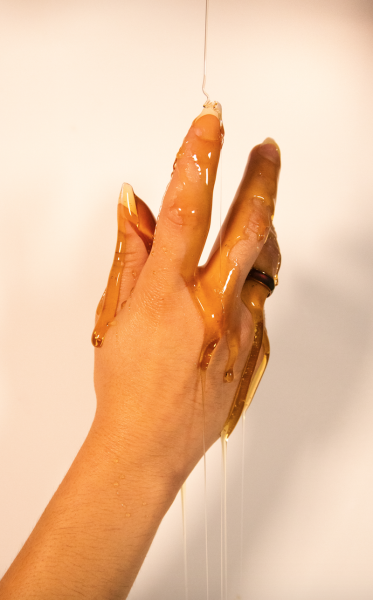How do you get reliable advice on sex?
It’s a topic that may be talked about often amongst peers, but getting advice about self-pleasure and intimacy that is dependable and accurate can be hard to come by. You might have a personal question, but finding someone with an accurate answer can seem like a difficult task.
We’re here to help! We put out a survey and had people anonymously submit questions for Monique Valle, an associate marriage and family therapist at Gather & Grow, a therapy group in Orange County. We asked those questions for you, along with a few of our own. There’s no need to feel embarrassed or ashamed to learn more about sex.
This interview has been edited for length and clarity.
Warning: This Q&A contains mentions of rape.

How can I make sex more enjoyable for me, not just my boyfriend?
Valle: Sex, in general, is really like getting to know yourself and a relationship with yourself and your body. I think it starts with ourselves, whether that be through masturbation, using toys, or trying to find out what our likes and dislikes are. With a relationship, I think it has a lot to do with communication. If something doesn’t feel good, say so, if it does… also say so.

Is it normal for it to hurt every time?
No, definitely not. If it is, that means there needs to be some type of foreplay, or lubrication. In terms of lubrication, if you’re using condoms as a contraception, just make sure you use water-based or silicone lube because that’s what can be used with condoms.
Why do I keep getting UTIs after sex?
Always pee after sex. So, peeing or showering afterward will help flush out any bacteria that is present. A lot of the time, we just tend to go to sleep afterward and that’s usually when bacteria can accumulate and become a UTI. Also, drink plenty of water.
From someone who is asexual, what is there to enjoy about sex?
For someone who is asexual then I mean, it might be very very different than what it is for somebody else. There’s this saying in sex-positive communities that’s like, “Don’t yuck my yum.” Essentially, everybody has their likes and dislikes. There are different desires and different arousals for each person. So it just looks different for everyone.
After being with my partner for years, it’s getting harder to be intimate and stay intimate. I’m still attracted to him, but how do I keep the intimacy alive?
Spicing things up can help with general intimacy. Integrating new experiences is important because relationships can become boring, especially in the long term. That comes with communication, “What do we feel comfortable exploring?” Whether it be introducing toys or some type of media, anything like that. It revolves around finding out what works for those involved and what feels safe in terms of trying new things and saying no. You can always say no, even if you say yes initially.
So, how do you think we can make the sex talk with each other more normalized?
It starts young. This is one thing I’m really passionate about—comprehensive sexual education, especially at early ages. Overall, our sex education as a society is awful and absolutely lacking. I think that if we started teaching about consent and talking about our bodies in an open conversation at a young age it could be better for everyone. It shouldn’t only be in one class where we learn about the reproductive system. We need to be more open to talking—and learning about it.

Is it healthy to only feel fulfilled by rough, violent intimacy after being a victim of rape?
Sexual assault and rape are out of our control, so sometimes we try to reenact it in our consensual sexual relationships to take back that power or agency. It can definitely be healing, but at the same time, it’s very nuanced. I don’t want to make a blanket statement that this is okay or right. There’s no binary notion of a yes or no. Talking to a clinical professional and exploring a little more within themselves about what makes it feel fulfilling to them can help.
What are some frequently asked questions that you get with your clients?
A big one is people tend to think that they are obligated to have sex with their partner even if they don’t want to because they’re in a relationship with them. You are not obligated to do anything.
This, again, goes back to communication and the openness and relationship with ourselves. Are we doing this because we feel good about it and want to, or is it because of the other person and what they want and what feels good to them? Both can coexist, but we have to keep in mind our own safety and security about it.
Taken from the Fall 2023 print issue of Inside Fullerton. Read it here.


